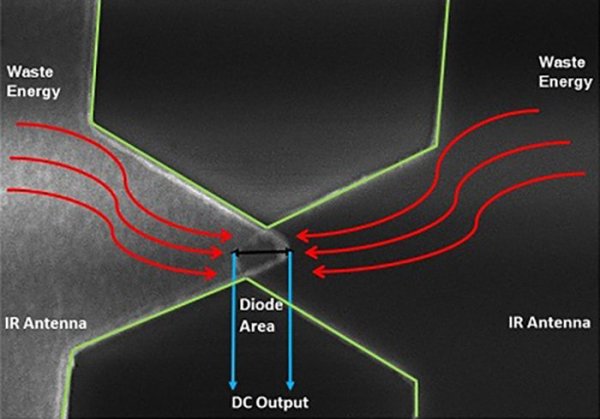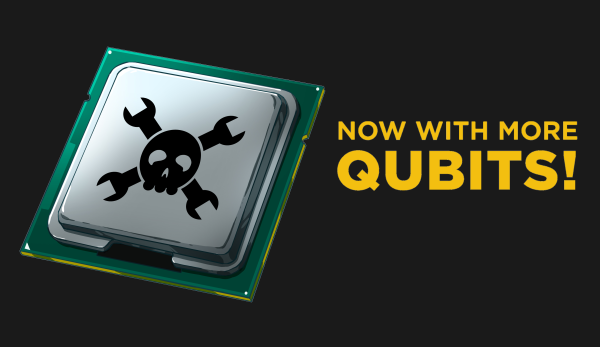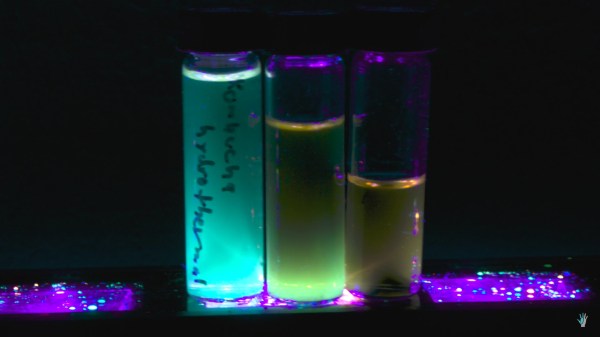More energy hits the earth in sunlight every day than humanity could use in about 16,000 years or so, but that hasn’t stopped us from trying to tap into other sources of energy too. One source that shows promise is geothermal, but these methods have been hindered by large startup costs and other engineering challenges. A new way to tap into this energy source has been found however, which relies on capturing the infrared radiation that the Earth continuously gives off rather than digging large holes and using heat exchangers.
This energy is the thermal radiation that virtually everything gives off in some form or another. The challenge in harvesting this energy is that since the energy is in the infrared range, exceptionally tiny antennas are needed which will resonate at that frequency. It isn’t just fancy antennas, either; a new type of diode had to be manufactured which uses quantum tunneling to convert the energy into DC electricity.
While the scientists involved in this new concept point out that this is just a prototype at this point, it shows promise and could be a game-changer since it would allow clean energy to be harvested whenever needed, and wouldn’t rely on the prevailing weather. While many clean-energy-promising projects often seem like pipe dreams, we can’t say it’s the most unlikely candidate for future widespread adoption we’ve ever seen.

















